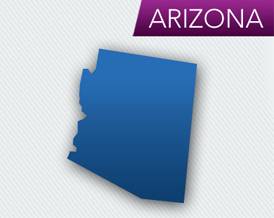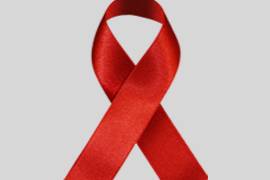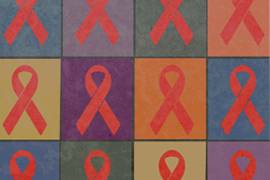
The LGBT Community Should Condemn Arizona’s Anti-Immigrant Law, SB 1070
Blog Search
Cross-posted on the Huffington Post.
On April 25, the U.S. Supreme Court will hear Arizona v. United States, a landmark case involving Arizona’s anti-immigrant law, SB 1070. This case will have a major impact in communities across the country, particularly in states that have already enacted (or are considering) virulently anti-immigrant laws modeled after SB 1070. There is an indissoluble link between immigrants affected by SB 1070 and the fight for LGBT equality because the LGBT community encompasses not only bi-national same-sex couples and LGBT asylum-seekers, but also undocumented LGBT immigrants who are often trapped in a “double closet.” The struggle for LGBT equality is not one-dimensional or focused on a single issue. Our movement is complex and multifaceted; it responds to the needs of a diverse LGBT community. After all, sexual orientation, gender identity and HIV status do not have an immigration status.
The movement for immigrants’ rights is inextricably intertwined with the LGBT struggle for equality. For example, until 2003, immigration law considered sodomy a crime of "moral turpitude"—involving conduct that is inherently vile, depraved, and punishable by deportation. Prior to 2010, immigration law prohibited people living with HIV from entering the country solely on the basis of their HIV status. The sodomy law and HIV ban may finally be gone, but the history and burden of exclusion, removal and deportation disproportionately harmed the LGBT immigrant community. Even today, immigration officials continue to deny “green cards” to immigrants who are married to same-sex U.S. citizen partners, because the federal government does not recognize same-sex relationships for immigration purposes. LGBT and HIV-affected refugees regularly appear in Immigration Court requesting asylum because they are fleeing persecution and torture in their home countries. Clearly, it would be foolish to presume that LGBT people live in a bubble where immigration law does not matter.
Similarly, draconian laws like SB 1070 are not some nebulous concept far removed from the LGBT community. Since SB 1070 criminalizes people based on their appearance, it strikes a deep chord within the struggle for LGBT inclusion. The LGBT community knows all too well how easily those who are perceived to “look” or “act” different can be singled-out for harassment and discrimination. Many of us have experienced hostility because our conduct, lifestyle, relationships or families clash with outdated, stereotypical notions of “masculinity” and “femininity.” Our own history of oppression has taught us that targeting individuals, families and communities is dangerous and wrong. SB 1070 is no different.
SB 1070 particularly threatens LGBT people of color and LGBT immigrants, many of whom already experience heightened hostility, harassment and even violence based on appearance, behavior, dress and other characteristics. This wrongful treatment often targets LGBT people—regardless of their immigration status—at the hands of local officials who lack a basic understanding of sexual orientation and gender identity/expression. Indeed, local authorities could use SB 1070 to disproportionately investigate and detain people who may have federal permission to remain in the United States but who lack immigration documentation, including some LGBT asylum-seekers and non-citizen members of bi-national same-sex couples.
SB 1070 will not keep communities safe. It only forces vulnerable populations deeper into the shadows. The specter of detention and deportation will only exacerbate the fear and distrust that dissuade many marginalized LGBT people from coming forward to report crimes, to serve as witnesses, or to help law-enforcement officials resolve crimes. SB 1070 will erode relationships between vulnerable communities and law enforcement, and will ultimately make people less safe. Furthermore, it will deter people from visiting hospitals, creating a significant public health risk. People may not come forward for HIV testing and lifesaving treatment. SB 1070 will make it even harder to fight the HIV epidemic. This alone will have profound consequences for the LGBT community.
Our immigration system may be broken, but laws like SB 1070 are not the solution. As Harvey Milk said in San Francisco in 1978: "You have to give them hope . . . . Without hope, not only gays, but the blacks, the Asians, the disabled, the seniors, the us'es, without hope, the us’es give up." Embracing this message, I urge the LGBT and immigrant communities to stand in solidarity and condemn SB 1070. We should also jointly call for comprehensive immigration reform that provides fair treatment for all immigrants, including those who are LGBT or living with HIV.




